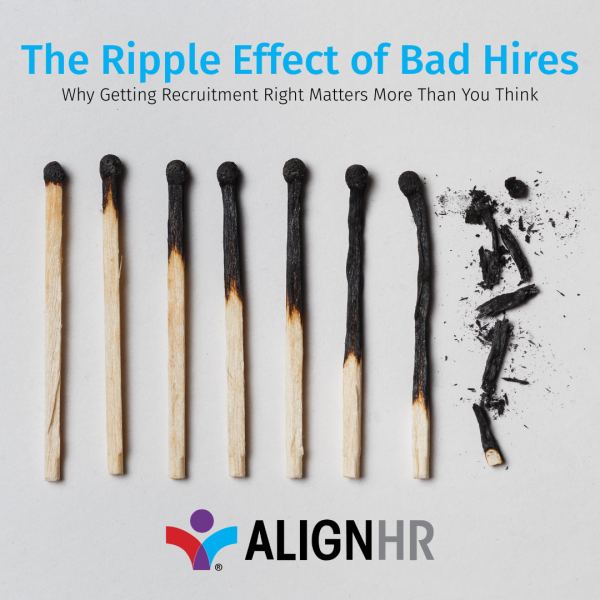
The cost of bad hires shows up fast for small businesses. Productivity drops. Teams stall. Culture takes a hit. And leaders end up spending time fixing preventable problems instead of growing the business.
On Beyond Compliance, Zach Abraham of AlignHR shared why hiring well matters so much. He also explained how to balance skills with values, so new hires strengthen your team from day one.
These costs multiply in small teams from Wheeling to Morgantown, where one role can affect an entire workflow.
Zach was clear about what lasts: “Trust is the foundation of every relationship that you have.” He added that he would “take somebody that's trustworthy, hardworking, [with] a good positive outlook on life … tenfold over somebody that is highly skilled [but misaligned].”
That does not mean credentials are unimportant. It means you hire for behavior and values first. Then you train for the skill you can teach.
Build relationships with three to five potential candidates before you need them. When a role opens, you already have people to call. This keeps you from forcing risky hires under deadline pressure.
Rushed recruiting feels cheaper. It rarely is. A short, structured process lowers risk and improves retention. It also protects culture, which influences every customer interaction and every internal decision.
Need to tune your handbook to support better hiring? Review the modern employee handbook essentials so your policies match how you recruit and onboard today.
As Zach put it, you can be kind and direct at the same time. You protect the team by addressing misalignment early and fairly.
The surest path to fewer hiring misses is a repeatable process. Define outcomes. Screen for values. Test real work. Onboard with clarity. Then coach to the standard you set.
For a deeper dive, listen to the conversation with Zach Abraham and host Luke Hladek on Beyond Compliance. It’s practical, candid, and built for small teams.
Need support? AlignHR partners with small businesses to improve recruiting, onboarding, and retention without adding layers of red tape.